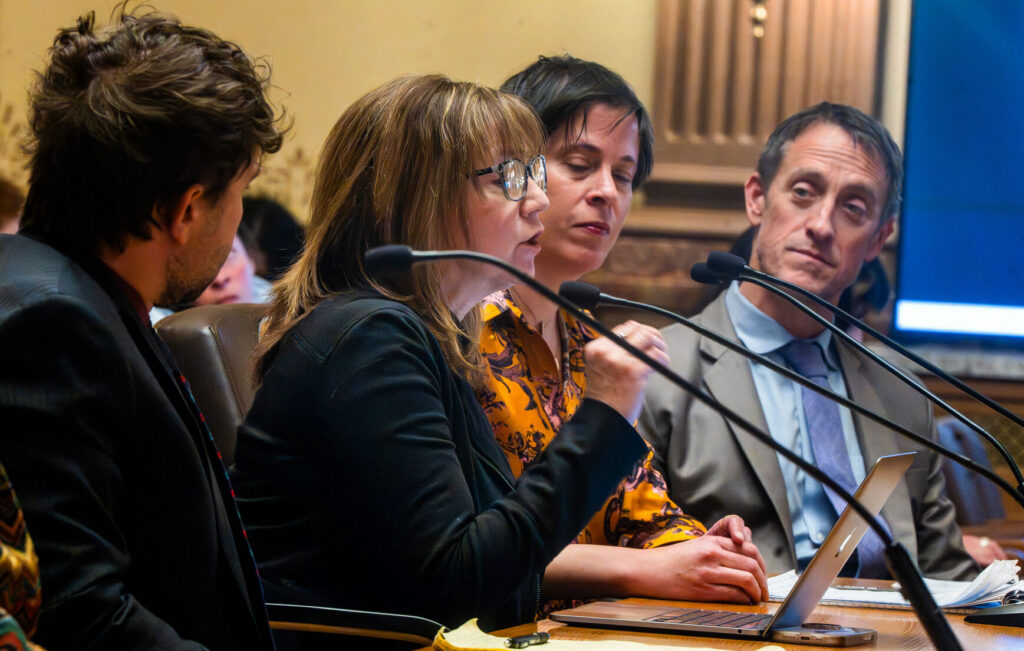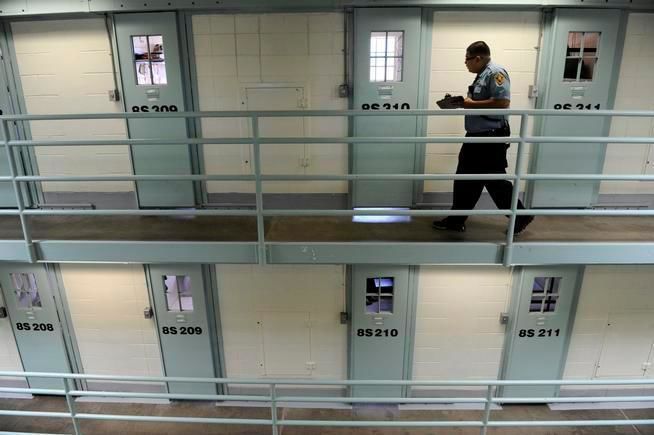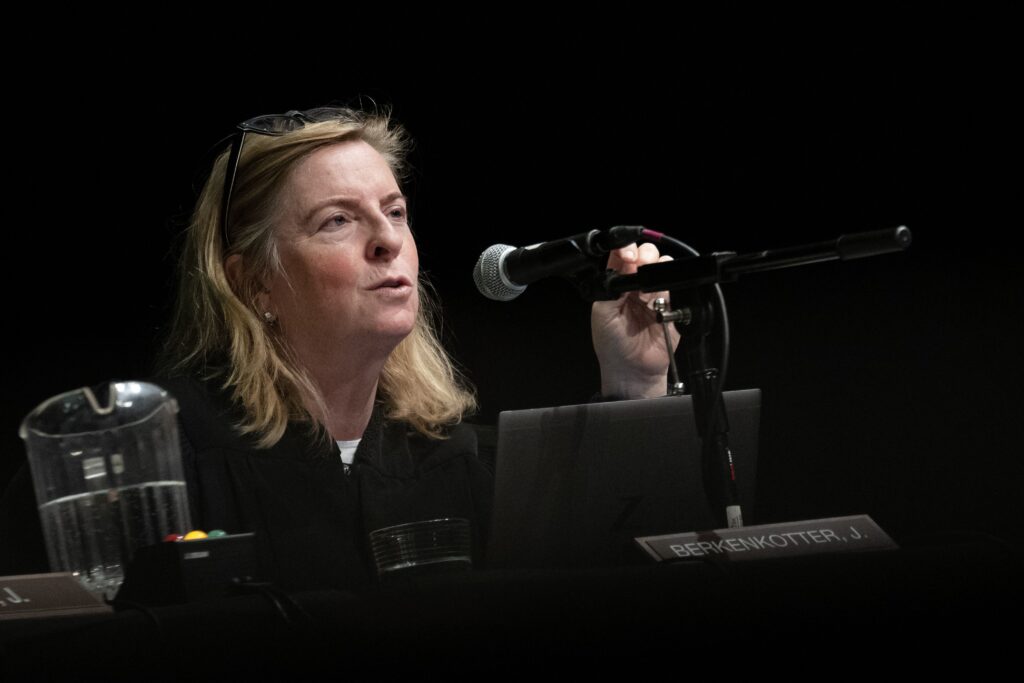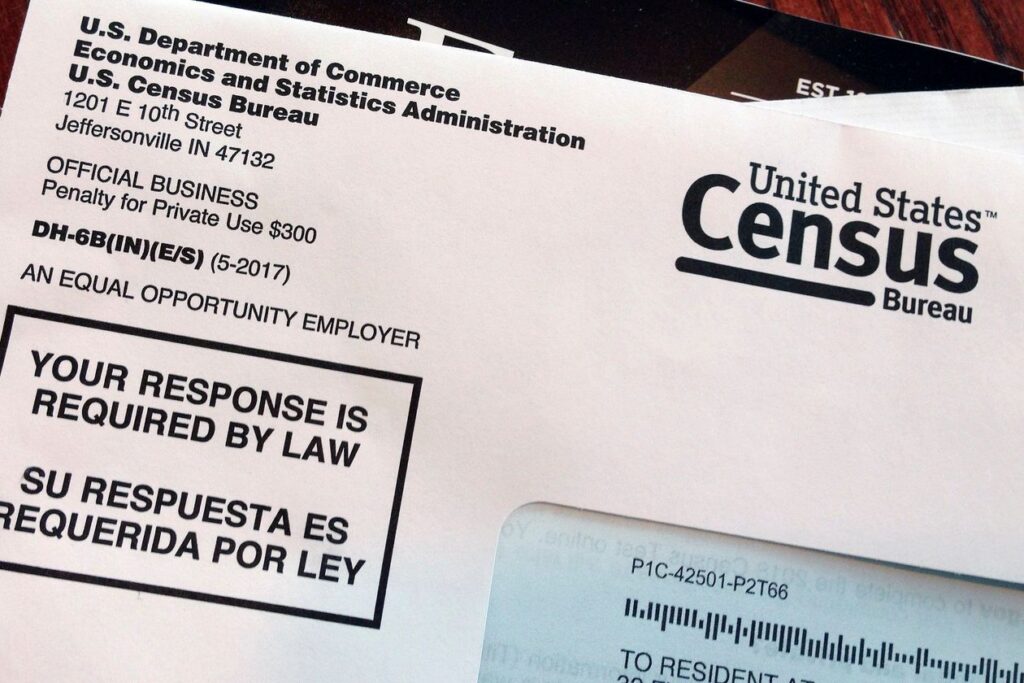Colorado seeks to regulate ‘intoxicating hemp’ similar to marijuana under new bill

Colorado lawmakers this week are preparing to review a bill designed to address a loophole in the state’s marijuana laws.
But the bill, which springs from a task force report, doesn’t go far enough, according to some from the panel that issued the recommendations.
Senate Bill 271 would require the state to begin regulating what’s known as intoxicating hemp.
The difference between hemp and marijuana, which come from the same plant, is in the Delta-THC level. In order to be classified as hemp under federal law, the plant cannot have more than 0.3% delta-9 THC, marijuana’s psychoactive.
But some in the hemp industry have found a work-around: Delta-8 THC, which is made by concentrating hemp-derived cannabidiol (CBD) from the hemp plant. It’s not quite as intoxicating as delta-9 THC, with estimates pegging it at anywhere between 50% to 75% of the potency.
The federal 2018 Farm Bill amended the Controlled Substances Act to exclude hemp from the statutory definition of marijuana, meaning hemp would be unregulated.
And that’s led to a proliferation of unregulated but intoxicating products with delta-8 THC which can be legally sold almost anywhere, and to anyone.
The Food and Drug Administration reported last year that national poison control centers received 2,362 case of exposure to delta-8 THC between Jan. 1, 2021 and Feb 28, 2022. Of that total, 41% were pediatric patients under the age of 18 and with one reported pediatric death.
Legislation in 2022 allowed the Colorado Department of Public Health & Environment to begin the process of regulating hemp with delta-8 THC, as well as to set up a task force to look at intoxicating hemp products, and to make legislative and rule recommendations. Those formed the basis for Senate Bill 271.
The marijuana industry has taken notice, and backs the efforts to regulate intoxicating hemp.
In a statement last week, the Marijuana Industry Group said the intoxicating hemp market is “selling hundreds of millions of dollars in completely unregulated, untaxed products annually without ID checks, purchase limits, or safety restrictions. Under current law, kids can purchase these products, often shaped like popular candy, online and have them shipped anywhere or even pick them up at a local gas station or grocery store.”
Under SB 271, any hemp product with more than 2.5 mg of delta-8 THC per serving would be regulated, meaning it will require a legal ID to purchase and would be sold at a dispensary rather than online or at a convenience store.
The measure puts the CDPHE in charge of regulating and registering hemp products, including certain intoxicating hemp products. The state’s Marijuana Enforcement Division, part of the Department of Revenue, would regulate intoxicating products through rulemaking that would either authorize or prohibit chemical modification, conversion, or synthetic derivation to create certain types of intoxicating cannabinoids; labeling and advertising requirements, production and testing, and inspection and record-keeping.
In addition, the bill creates a “safe harbor” provision, under which a company could manufacture intoxicating hemp products in Colorado but couldn’t sell them here.
The Marijuana Industry Group has had some criticisms for the task force created under SB 22-205.
The group said the task force’s recommendation for 2.5 mg of delta-8 THC per serving was too high a limit, and the task force didn’t make any recommendations on per package limits, which would allow anyone of any age to purchase large packages with unlimited servings.
Bill co-sponsor Sen. Kevin Van Winkle, R-Highlands Ranch, also isn’t crazy about the high delta-8 THC limit, although SB 271, as introduced, keeps that 2.5 mg level.
“In the interest of preventing youth access and ensuring public safety, however, we believe we need to institute a lower THC limit, create per package limitations, and require testing and labeling requirements just as we would with cannabis products,” Van Winkle said in a statement.
Even the task force members weren’t all happy with the recommendations. The report included dissenting opinions that pointed to weaknesses in the regulations proposed as well as issues outside the scope of the task force that will become more important in the years to come.
Task force member Kyle Ray of Colorado Chromatography Labs pointed out the legislation should classify all cannabinoids as potentially intoxicating, with exceptions for CBD and other related cannabinoids. The bill divides them into three categories: non-intoxicating, potentially intoxicating and intoxicating. He suggests just two standards: intoxicating and non-intoxicating.
Ray also said intoxication should be based on dosage, not specific cannabinoids. For example, he said, a 25 mg delta-8 gummy is likely to be more intoxicating than a 2 mg delta-9 THC gummy.
Then there’s the impact on the hemp industry, Ray said. The regulations stemming from the bill could result in the “mass exodus” of hemp companies due to “overly burdensome and inconsistent recommendations.”
Several dissenters also pointed out the task force recommendations don’t restrict the sale of intoxicating hemp at 2.5 mg delta-8 THC to minors. Those products should only be sold in dispensaries, several said.
“A lack of recommendation for total servings per container opens a gigantic loophole to youth intoxication,” said a dissent led by Truman Bradley of the Marijuana Industry Group, another task force member.
Van Winkle told Colorado Politics he is looking at several changes to the bill, most notably on the 2.5 mg delta-8 THC floor for intoxicating hemp and on per-serving packaging.
“We are looking at lowering that 2.5 mg limit and adding packaging limits” to ensure kids in Colorado are not getting access to products that get them high, Van Winkle said. “We need to make sure if it is ‘hot hemp’ that we’re able to define what that is and that we can protect the public, including kids.”
“If companies do want to sell products that are intoxicating, they can do it in the regulated market just as any other marijuana product,” he added.
SB 271 is scheduled for the Senate Finance Committee Tuesday.













